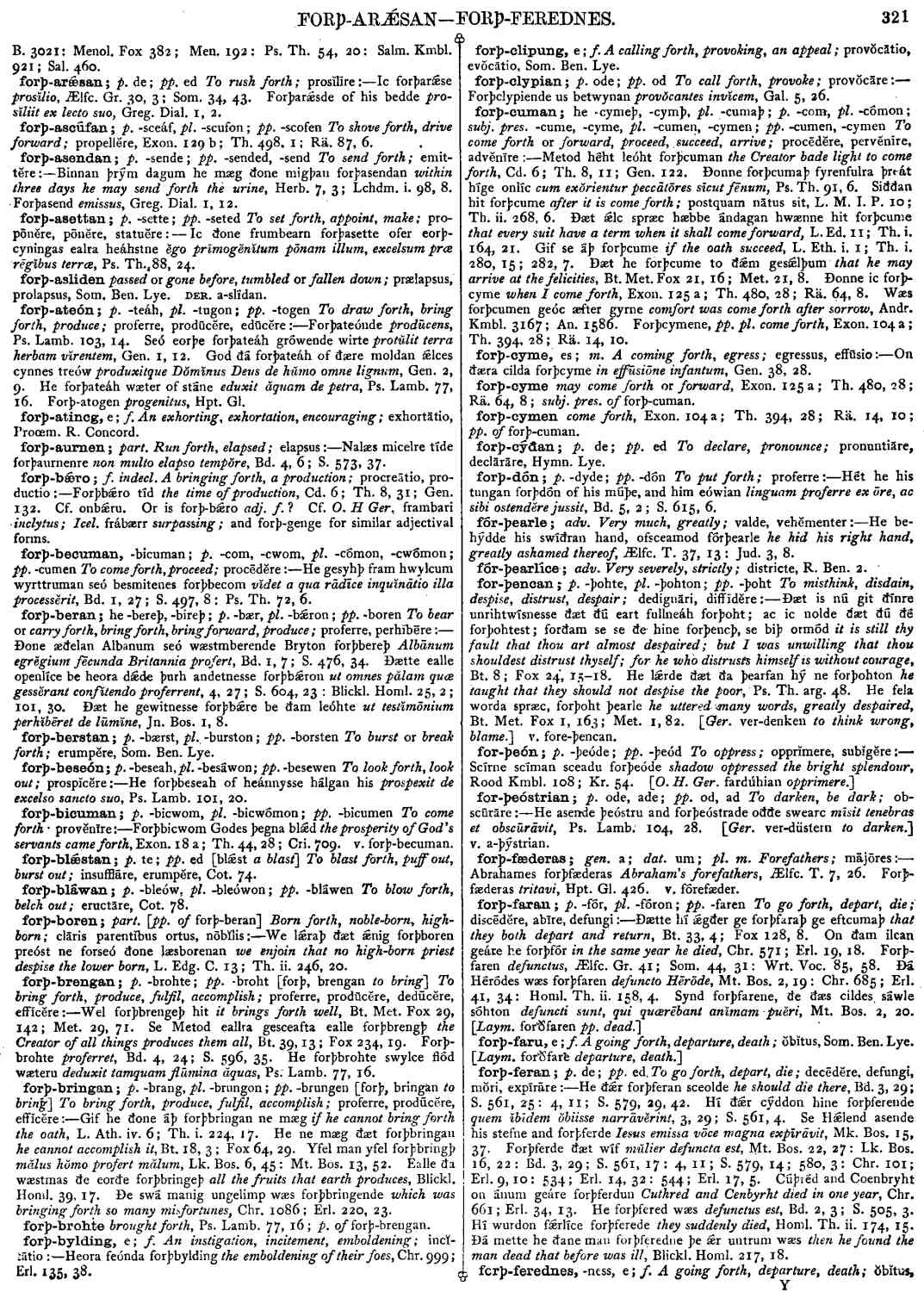for-þencan
- verb [ weak ]
-
Ðæt is nú git ðínre unrihtwísnesse ðæt ðú eart fullneáh forþoht; ac ic nolde ðæt ðú ðé forþohtest; forðam se se ðe hine forþencþ, se biþ ormód
it is still thy fault that thou art almost despaired; but I was unwilling that thou shouldest distrust thyself; for he who distrusts himself is without courage,
- Bt. 8 ;
- Fox 24, 15-18.
-
He lǽrde ðæt ða þearfan hý ne forþohton
he taught that they should not despise the poor,
- Ps. Th. arg. 48.
-
He fela worda spræc, forþoht þearle
he uttered many words, greatly despaired,
- Bt. Met. Fox 1, 163 ;
- Met. 1, 82.
Bosworth, Joseph. “for-þencan.” In An Anglo-Saxon Dictionary Online, edited by Thomas Northcote Toller, Christ Sean, and Ondřej Tichy. Prague: Faculty of Arts, Charles University, 2014. https://bosworthtoller.com/11839.
Checked: 1